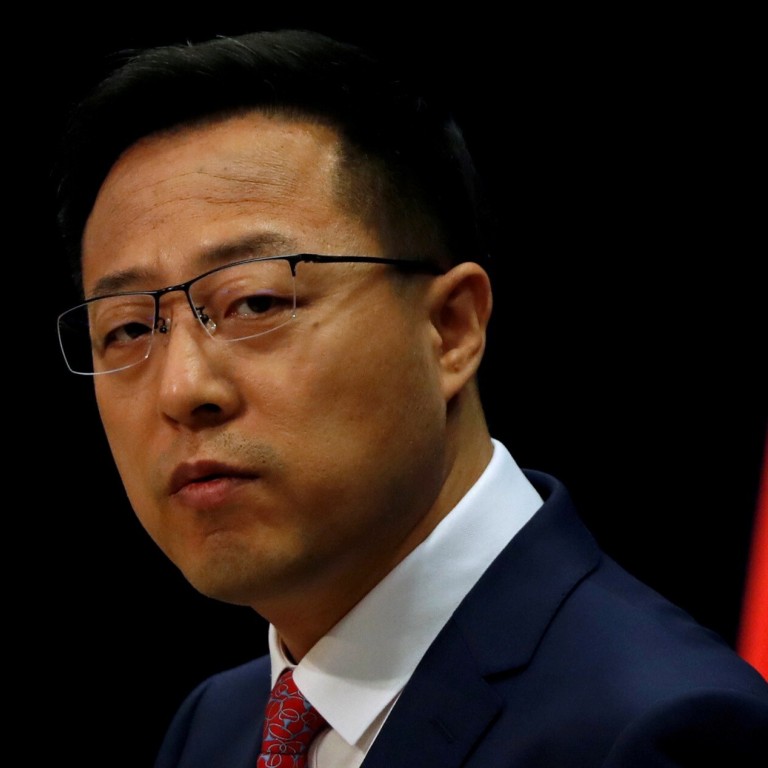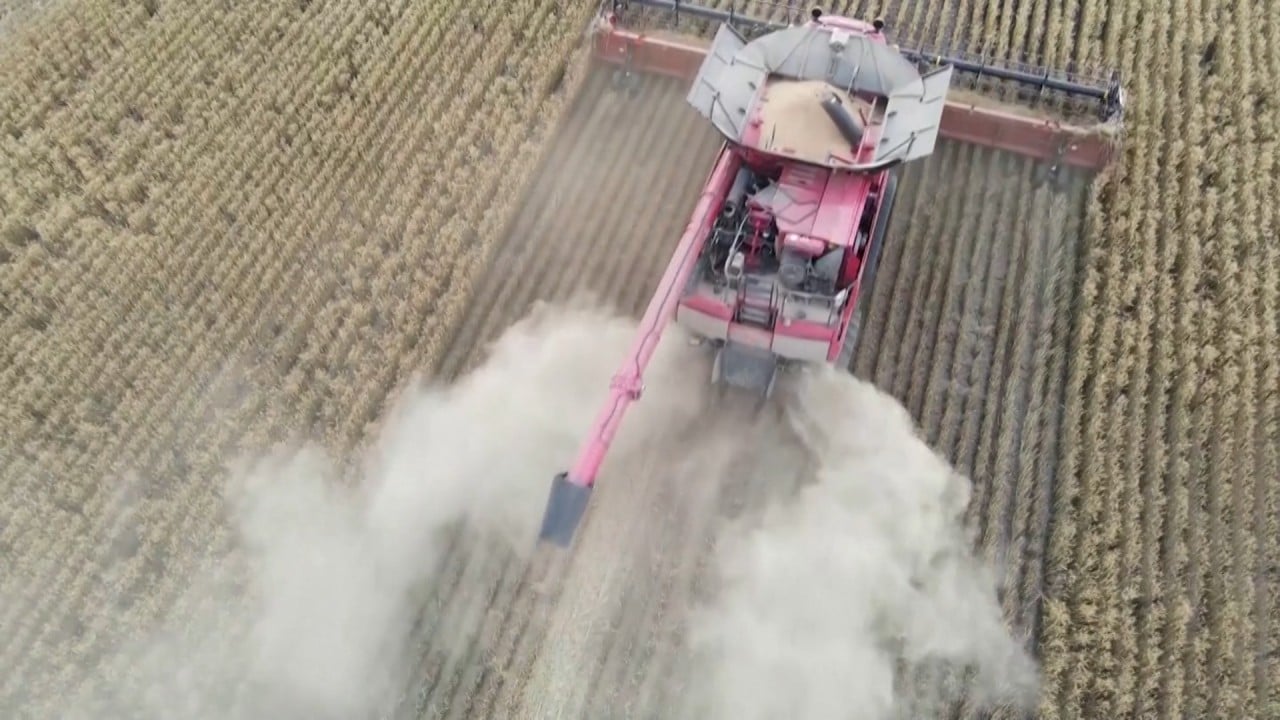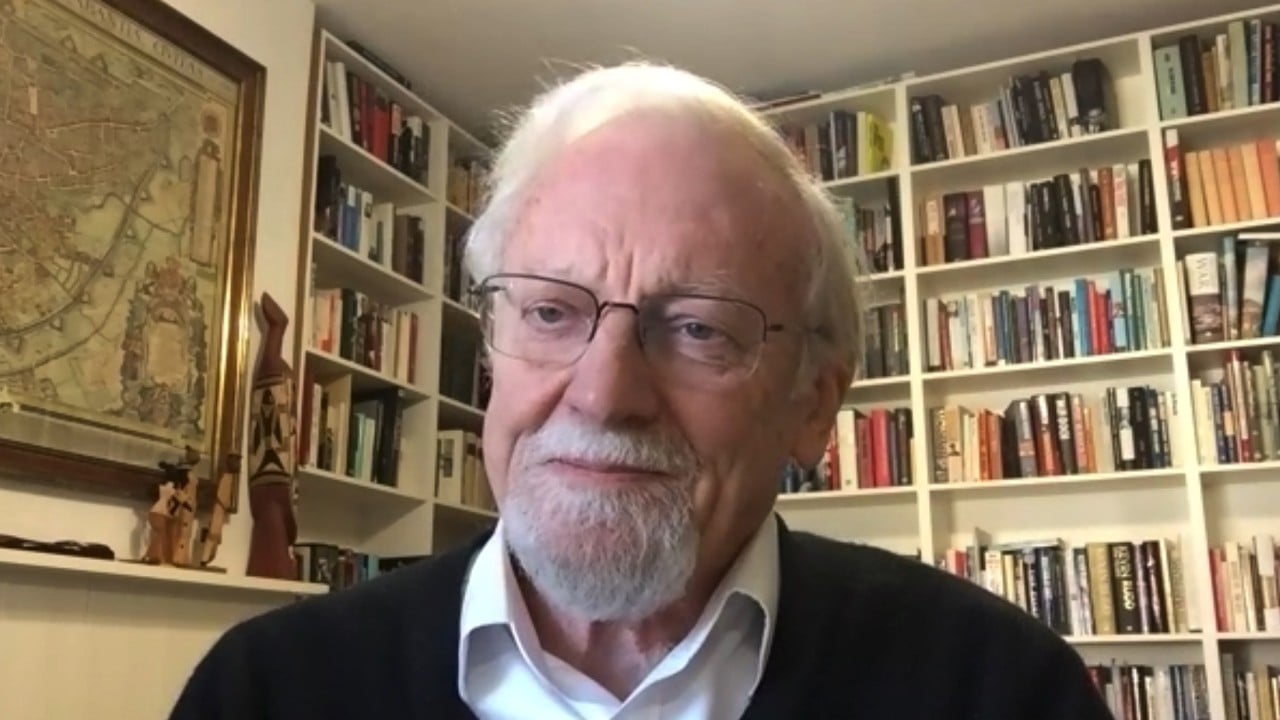
China-Australia relations: Beijing blames Canberra for trade spat, citing grievances from Huawei to Taiwan
- Beijing has dismissed Australia’s claim that the ‘ball is in its court’ to salvage relations between the two countries
- China’s foreign ministry claims Canberra’s stance on issues ranging from Xinjiang to 5G networks is to blame for dispute
China has rejected Australia’s claim that the “ball is in its court” regarding resolution of their escalating trade dispute, providing a long list of alleged offences that have “greatly hurt the feelings of the Chinese people”.
At a press conference in Beijing on Tuesday, foreign ministry spokesman Zhao Lijian said China bears “no responsibility” for the collapse in bilateral ties, which has resulted in a series of Australian exports to China being hit with trade restrictions.
He said lobbying for Taiwan to be admitted to the World Health Organization and banning Chinese companies from Australia’s 5G telecommunications network had also soured the relationship.
Australia’s “arbitrary searches” of Chinese media reporters and accusations of Chinese “intervention and infiltration” in domestic affairs had further politicised bilateral ties, Zhao added, accusing Canberra of “clinging to cold war mentality and ideological prejudice”.

01:15
China-Australia trade: Beijing set to ban nearly US$400 million worth of Australian wheat imports
“It is crucial that partners like China, as they enter into new agreements like this, deliver not only on the detail of such agreements, but act true to the spirit of them,” Birmingham told The Age newspaper.
Zhao – known as the flag-bearer for a new breed of aggressive Chinese “wolf warrior” diplomats – rejected Birmingham’s claim, placing the blame entirely at Canberra’s door. “Australia should face up to the crux of the setback in the bilateral relations,” he said.
China has always adhered to the Five Principles of Peaceful Coexistence, including non-interference in its internal affairs, to develop relations with other countries
“China has always adhered to the Five Principles of Peaceful Coexistence, including non-interference in its internal affairs, to develop relations with other countries,” said Zhao, referring to an element of Chinese foreign policy first pursued with India in the 1950s and subsequently adopted in a series of pacts and resolutions around the world.
The Australian Department for Foreign Affairs and Trade did not immediately respond to requests for comment.
The trade actions have been technical in nature, but Chinese officials have implied on a number of occasions they can be resolved through political means.
China is Australia’s biggest trading partner, buying 39 per cent of Australia’s exports. Bilateral trade between the two countries is worth around US$171 billion, although the dispute has emphasised how reliant Australia is on China for merchandise trade.
In October, Chinese exports to Australia rose 16.62 per cent from a year earlier to US$5.25 billion, while imports from Australia rose 6.64 per cent to US$10.11 billion, according to data from China’s customs agency. However, this was before the latest round of trade actions came into effect.

07:34
Australia and China cooperation too valuable for 'nonsensical' decoupling
Last week, in a sign the Australian government would not bite its tongue over geopolitical and human rights issues relating to China, Foreign Minister Marise Payne criticised the decision to ban pro-democracy lawmakers from taking their place in Hong Kong’s Legislative Council.
And on Tuesday, Australian Prime Minister Scott Morrison and Japanese Prime Minister Yoshihide Suga issued a joint statement following a leaders meeting in which they expressed serious concerns over the situation in the South China Sea and in Hong Kong.
China has sweeping territorial claims over the South China Sea, as well as the East China Sea, which has brought it into dispute with neighbouring countries, including Japan.

